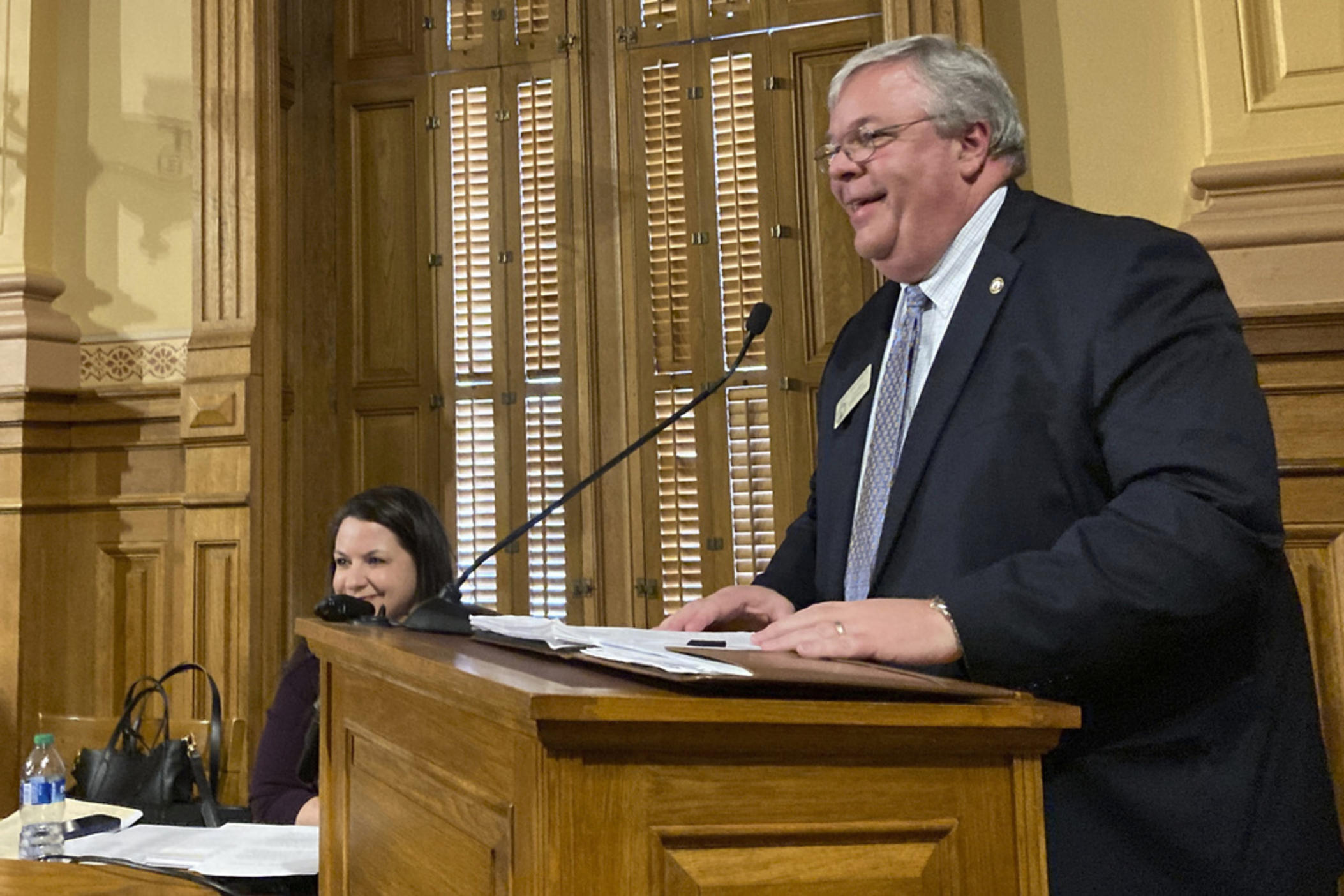Section Branding
Header Content
There's still room to spend in Georgia's budget even as tax collections slow
Primary Content
Georgia's state tax collections aren't growing as fast as they were several years ago, but that doesn't mean Gov. Brian Kemp and lawmakers won't have room for new spending.
That's because the Republican governor, who sets the ceiling on how much lawmakers can spend, has set the revenue estimate so low that Georgia is again on track to run a multibillion-dollar surplus. Pay increases for public employees and teachers, more spending on health and education and more tax breaks could all come out of that surplus when state lawmakers convene Monday for their 2024 session.
And then there's the surpluses of years past. Georgia has $11 billion in cash generated by surpluses over three years, in addition to a legally designated $5.4 billion rainy day account. Republicans say they don't want to make any ongoing commitments with the $11 billion, but big hunks of that money could be spent to expand highways, renovate state buildings and pay down debts.
"Things have softened, but I think we're still in a good position," House Appropriations Committee Chairman Matt Hatchett, a Dublin Republican, said of tax collections. "I think we're going to stay in that position. unless something drastic nationally or internationally happens."
Kemp hasn't yet committed to a pay raise for state employees, but one seems likelier after the governor rolled out $1,000 bonuses for state, university and public school employees just before Christmas. In announcing that $330 million in spending, he promised "more good news coming in the weeks and months ahead."
Legislative budget writers say that on top of any across-the-board increases, they're going to be focused on raising pay for state jobs where employees continue to leave at high rates. A state workforce report found that 21% of full-time state employees left their jobs in the budget year that ended June 30. That's high, but was a marked drop from the more than 25% who left the year before.
Public employees have received $7,000 in pay raises during Kemp's first five years. The typical full-time state employee made $50,400 in the 2022-2023 budget year according to state figures, while the average teacher made $62,240 in 2021-2022, according to the National Education Association.
More state employees were hired than departed in 2022-2023 for the first time in years, but the state is still seeing high turnover in its prison and juvenile justice systems, and among child welfare, mental health and driver's license workers.
"We're going to have some upward pressures in certain areas of our of employees, and we'll try to address them," said Senate Appropriations Committee Chairman Blake Tillery, a Vidalia Republican. "While there may be something across the board, I don't think that you'll see everything be equal across the board."
There is also likely to be a push to increase reimbursement rates for health care and mental health contractors, recognizing in part that those providers need to pay their employees more as well. Kaleb McMichen, a spokesperson for the Department of Behavioral Health and Developmental Disabilities, said in a statement that doing so is "crucial."
"We recognize the significance of fair and sustainable rates to ensure the continuity and quality of community-based services," McMichen said.
Kemp has already pledged to seek $104 million to begin annual appropriations for school security. Educators are also hoping lawmakers may give a permanent boost to school bus funding above the $148 million allocated this year. In 1991 the state paid the majority of transportation costs, while today it pays around 10%.
"I hope we can help there some, too," Hatchett said.
The state will have to budget for a $1.1 billion decrease in tax revenue after Kemp and Republican legislative leaders said in December that they wanted to speed up an already-planned income tax cut, bringing it to a flat rate of 5.39% in 2024. What had been a tax with a series of brackets that top out at 5.75% on earned income above $7,000 a year changed to a flat income tax rate of 5.49% on Jan. 1.
Kemp could also call to continue a one-time rebate that cuts local property tax bills by about $500 for taxpayers with homestead exemptions, a move that cost the state about $950 million last year. Both Tillery and Hatchett said they would support that.


